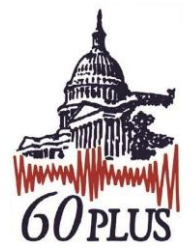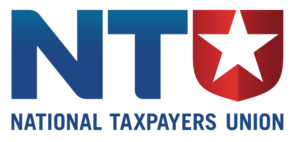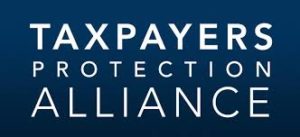Conservative Group Coalition Letter In Opposition to Duty Drawback Excise Tax Restrictions
![]()




On behalf of the undersigned organizations, we write in opposition to the proposed rule restricting the use of duty drawback for federal excise taxes including alcohol, tobacco, and fuel taxes. This rule is being proposed as part of regulatory implementation of the Trade Facilitation and Trade Enforcement Act of 2015 (TFTEA) through the Modernized Drawback Notice of Proposed Rulemaking (USCBP–2018–0029).
We have concerns that the drawback NPRM lacks clear policy justification, undermines American competitiveness by restricting exports, goes against the legislative intent of Congress, and sets a precedent of using tax and trade export programs to discriminate against industries.
The Trump administration has championed pro-growth policies focused on tax reform and regulatory reform. These policies have promoted American competitiveness and investment in order to create jobs and grow the economy. Unfortunately, the proposed duty drawback rule undermines these gains.
Duty drawback allows the refund of duties, taxes, and fees paid on imported product when a similar product is exported or destroyed. Today, drawback is used across the world and is available to any industry. The program has a long history stretching back more than 200 years, and has proven successful in incentivizing U.S. manufacturing and reducing the trade deficit.
Congress passed TFTEA with the goal of updating and modernizing the duty drawback proposal in order to promote U.S. exports and reduce compliance burdens for business and the government. For example, Congress made the program easier to administer and comply with by tying drawback eligibility from the vague and subjective standard of “commercially interchangeable goods” to goods that are classified under the same eight-digit Harmonized Trade System (HTS) number.
In fact, lawmakers actively chose to retain drawback for excise taxes, a position which has a long record of support among Democrat and Republican members of Congress. Despite this clear Congressional intent, the NPRM restricts duty drawback for excise taxes.
We strongly disagree with the justifications for restricting duty drawback as outlined in the NPRM. For instance, the NPRM argues that restrictions on duty drawback are needed to prevent revenue loss even though there is no evidence that Congress passed TFTEA with this goal in mind.
While the NPRM estimates of lost revenue are questionable, they are a minor share of total federal revenues collected. For example, the rule projects potential revenue losses of $15 to $69 million every year over the next decade for wine and $312 million to $937 million for distilled spirits. By comparison, CBO projects total federal revenue will total $44.162 trillion in the next decade. Regardless, we believe that this foregone duty drawback excise tax revenue never truly belonged to the federal government as the product was never sold in the U.S.
The NPRM also outlines a number of hypotheticals that manufacturers could use to lower their taxes including manufacturing cheaper products for the sole purpose of destroying them or re-routing of imports to manipulate drawback. However, there is no evidence that these scenarios are based on real-life examples.
Alarmingly, the NPRM also sets the precedent that federal agencies can discriminate against industries by choosing who should be eligible to for tax and trade programs. This is wrong – tax and trade policy should be economically neutral so that it promotes efficient allocation of resources by affording the same provisions – in this case utilization of duty drawback – to all businesses.
We urge you to reverse the proposed rule limiting excise tax duty drawback. This limitation harms American competitiveness and restricts exports, stymies the creation of jobs and economic growth, ignores Congressional intent, and sets a precedent of government agencies using tax and trade programs to discriminate against industries.
Sincerely,
Grover Norquist
President, Americans for Tax Reform
James L. Martin
Founder/Chairman, 60 Plus Association
Saulius “Saul” Anuzis
President, 60 Plus Association
Pete Sepp
President, National Taxpayers Union
Kevin R. Kosar, Ph.D.
Vice-President of Policy, R Street Institute
David Williams
President, Taxpayers Protection Alliance
